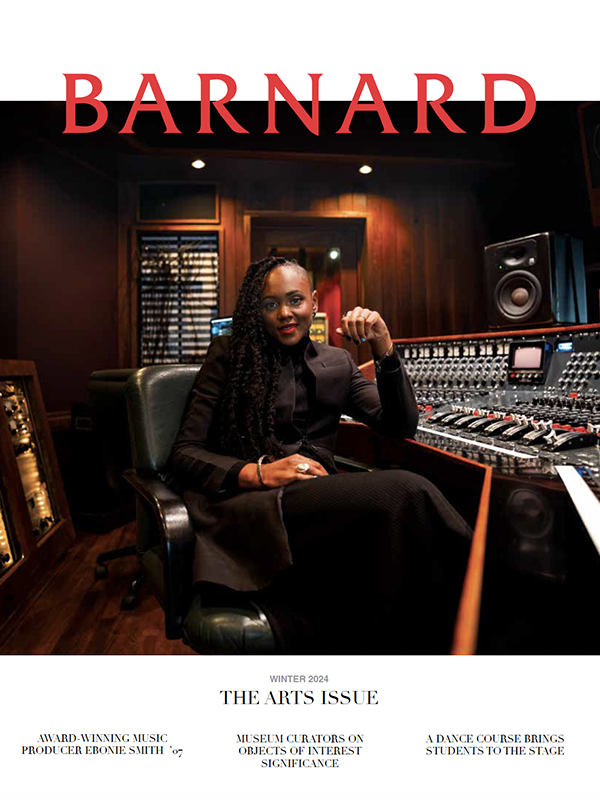In this undeniably tough economy, where there’s a painful mismatch between the number of job openings and the applicants qualified to apply for them, simply getting your résumé plucked from the pile and being offered an interview is a great start. Now what do you do to ensure that interview translates into an actual offer? A reunion workshop, “Mastering the Interview,” led by Victoria Passarella, a counselor in the Career Development office, offered ideas and tips to help alumnae.
Since women interview differently than men, they need to learn how to tell their stories in a compelling, powerful way that highlights what they’ve done and what they can contribute to a potential employer. “Women have a harder time owning their accomplishments,” said Passarella. “You have to feel you’re empowered. No one will hire you unless you feel like you should be there.” Too often, concerns about being perceived as “bragging” interfere with their ability to unabashedly explain what they’ve done on the job or as volunteers.
To pitch yourself successfully, it’s important to control body language, tone of voice, even your level of excitement, during the discussion. An employer wants to know you want the position. “They want to see your drive and motivation, that you’re someone who will be proactive and not need to be micro-managed,” she added.
Passarella urged the attendees—they ranged from recent graduates trying to land that first job to more mature alumnae seeking a career change—to think of the interview as an opportunity to share a story, one designed to highlight their achievements, skills, and strengths. The interview is not about repeating what’s shown on a résumé.
“We don’t speak in bullet points,” she said. “Think of it as a story for a stranger to follow. Edit through that lens. Would a stranger be able to understand this?”
It’s not enough to recapitulate your résumé highlights. You have to sell yourself, no matter how uncomfortable you may be at seeing yourself as a “product,” explained Passarella. She recommended that candidates prepare their arguments about why they want a particular position, as well as how their skills benefit the prospective employer. “Focus on the skills that you’re bringing to the table that another person doesn’t have,” she emphasized. “This is great for career-changers, as an opportunity to show what you specifically offer.”
Interview stress may lead to anxiety or memory lapses that can sabotage your efforts. “Practice out loud,” she said, “by yourself, or with a friend or family member. You can film yourself using your computer camera, and can play it back to check for tone.” As part of the Career Development services offered to alumnae, she added, “You’re welcome to have a conversation with one of our counselors.”
Preparation is a key element for success. “Make a list of five to six things that you want to bring up in an interview,” she suggested. “Be sure to answer the questions [the interviewer asks]; if you’re unsure about what’s being asked, ask for clarification and take your time [answering]. Rarely is an answer too long.”
No matter how experienced the candidate or how many interviews the applicant has undergone during her career, Passarella pointed out that interviews are different in this age of social media. The expectation is that both the candidate and interviewer will have Googled one another and checked LinkedIn and Facebook profiles, as well as any other public Internet presence.
Passarella also addressed concerns like appropriate responses to the usual “tell me about your strengths/weaknesses.” Instead of answering with “I’m a perfectionist,” far better to state something along these lines, “my Excel skills aren’t that high so I’ve signed up for a professional development course.” Another strategy might be acknowledging a difficult client or a glitch-ridden project, and how you handled it successfully.
Passarella suggested that candidates ask the interviewer open-ended questions about the most rewarding or most challenging situation he or she has faced. “What’s challenging for someone might be what you love to do,” she said.
Salary shouldn’t come up during the first interview. If you’re asked about your previous or current salary, Passarella offered options like, “it’s negotiable and flexible,” or “when I know more about this position I can provide the information.”
Finally, don’t waste time thinking about what you’ll wear for the interview. Have an appropriate outfit, like a suit, ready to go so that you’re focused on your story, not your appearance.
Several alumnae who attended the workshop found it beneficial. “I’m in transition for a second career,” said Wanda Chin ’77. “This was very helpful.” Having these interview tips was also worthwhile for Elizabeth Ayme ’11, who said, “I’m having some trouble getting a job I’m satisfied is up to my level. I want to increase my chances.”
Sabrina Scott ’87 hoped to translate the many interviews she receives into offers. “I’m told I have an excellent résumé, but I’m not getting the offers. I’m so grateful Barnard has given [this workshop] for alumnae. This was really good for me.”
From Passarella the take-away was, “You’re not going in there thinking you’re not qualified. Own your past experiences. Go confidently.”
Visit barnard.edu/cd for more about Career Development services.
